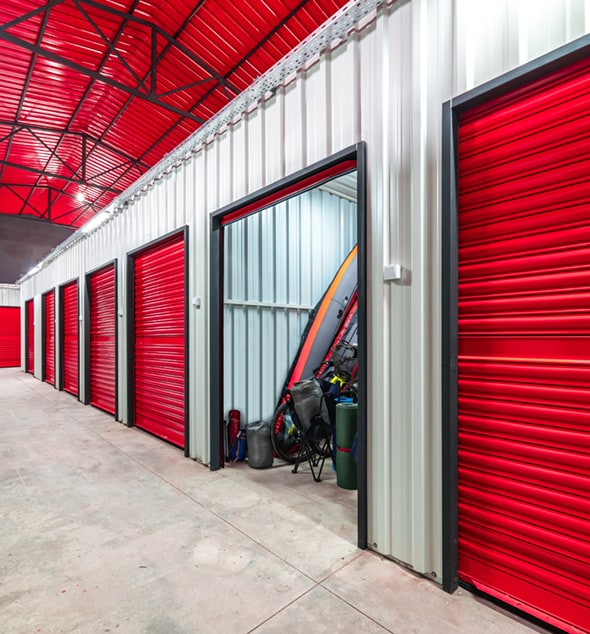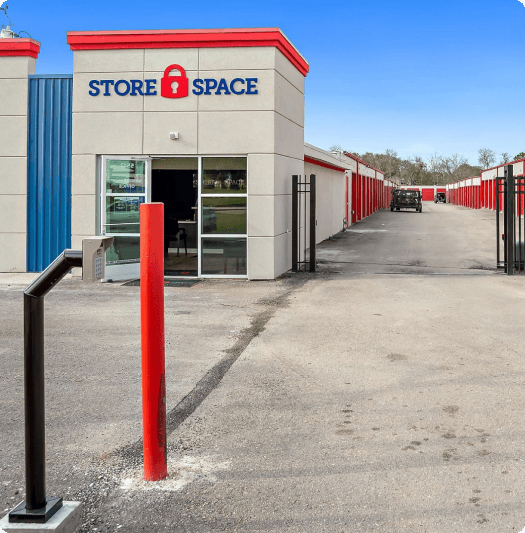Is Gainesville a Good Place to Live? Moving to Florida

While commonly referred to as a haven for retirees and one of the best college towns in the nation, Gainesville is now attracting Americans of all ages who are wondering if Gainesville is a good place to live.
If you are considering Gainesville as your next home and are interested in moving to Florida, keep reading to gain insight into the pros and cons of living in Gainesville and learn all about “Hogtown” and the many amenities it offers its residents.
After reading this blog, you will be able to answer the following questions and decide for yourself if Gainesville is a good place to live.
Where is Gainesville Florida Located?
Gainesville is the largest city in north central Florida, and the Gainesville metropolitan area supports a population near 340,000 residents. Gainesville proper is the only city in the area with more than 10,000 residents.
| Gainesville, FL | Data* |
| Population (2010) | 124,354 |
| Population (2020) | 141,085 |
| Area (sq. mi.) | 64.54 |
| Land Area (sq. mi.) | 63.36 |
| Water Area (sq. mi.) | 1.17, (1.74%) |
| Elevation (ft.) | 152 |
| Time Zone | UTC-5 (EST) |
*Data from census.gov
The city is surrounded by rural land and natural wilderness. The geography of Gainesville and its surrounding area is characterized by dense tree canopy and an abundance of evergreens, conifers and deciduous tree species. Boasting one of the most unique urban ensembles of tree species in the nation, every year since 1982 the National Arbor Day Foundation has recognized Gainesville as a “Tree City.”
What is Gainesville Best Known For?
Aside from being home to one of the densest urban arrays of botanical species in the United States, Gainesville, Florida, is also well known for being many other things: the home of the University of Florida, the birthplace of Gatorade, and one of the best places to live in Florida, to name just a few.
Additional sites, attractions and novelties include:
- A host of notable figures have called Gainesville home over the years. The list includes Tom Petty, Bo Diddley, River Phoenix, Maya Rudolph, Tim Tebow and many more.
- Gainesville was the first city in the United States to be designated as a Butterfly City.
- Gainesville supports a sprawling array of parks, historic places and natural areas.
- Gainesville is commonly referred to by its nickname, “Hogtown.”
Why is Gainesville called Hogtown?
The nickname “Hogtown” holds historic relevance in the Gainesville area.
The name dates to a 19th century Seminole settlement that was located near what is now Westside Park in Gainesville. Prior to European expansion, the settlement supported a vibrant community of hog-raising Seminoles. However, after the United States acquired Florida from Spain in 1819, white settlers moved to the area. In 1823, the Treaty of Moultrie Creek required the Seminoles to move out of Hogtown and onto reservation land. Chief John Mico was granted a sum of $20 dollars by the United States government for honoring the treaty.
What are the Pros of Living in Gainesville?
Life in Gainesville, Florida, includes several attractive benefits. The city’s cost of living is significantly lower than the average cost of living elsewhere in the nation. Gainesville supports a host of parks, outdoor recreation sites, museums and cultural activities, and the city’s education and healthcare facilities are nationally recognized.
The following sentiments were taken from Gainesville residents who rated the city 5 out of 5 stars on Niche.com:
- “The local people have been very kind and excepting [sic: accepting]. There is so much nature to be explored, which is really nice sense I want to be a zoologist.”
- “I love Gainesville, friendly town with lots to do. There's a lot of good options for primary and secondary education as well.”
- “I love the atmosphere of Gainesville. The people are friendly and lovely to be around. I also love the variety in Gainesville. So many parks, stores, and unique places. There is something for everyone.”
Is Gainesville an affordable place to live?
Those wondering if Gainesville, Florida, is an affordable place to live will be pleased to hear the answer is a resounding, “yes.” In fact, the average cost of living in Gainesville is 10 percent lower than the average cost of living in the United States.
In addition, Gainesville’s housing market is also very affordable. The median home cost in Gainesville is $229,700 (April 2022), which is lower than the median home cost of both Florida ($294,900) and the United States as a whole ($291,700).
Within additional financial sectors, such as transportation and miscellaneous costs, Gainesville also presents an affordable cost of living. Utility, grocery and health care costs, are just about on par with the rest of the nation. The table below compares Gainesville’s cost of living with the cost of living of several other cities with similar populations.
| CITY | STATE | COST OF LIVING* |
| Gainesville | FL | 90 |
| Midland | TX | 91.7 |
| Roseville | CA | 135 |
| Charleston | SC | 109.8 |
| Enterprise | NV | 113.8 |
*Compared to a national average of 100 by BestPlaces.net
Nationally recognized healthcare facilities
In Gainesville, healthcare is a city-wide priority. This makes Gainesville an advantageous place to live if you are a retiree or considering raising a family. The city’s Health care facilities are nationally ranked and consistently recognized as some of the best in the nation.
UF Health Shands Hospital was ranked in U.S News & World Report’s 2019-2020 Best Hospital list for seven specialties. The hospital was among the best in the United States for nephrology (24th), urology (24th), geriatrics (37th), diabetes and endocrinology (40th), gastroenterology and GI surgery (40th), and pulmonology and lung surgery (44th).
The North Florida Regional Medical Center also supports an impressive resume of medical care. The medical center specializes in neuroscience, cardiovascular care, invasive surgery and senior care.
Stellar education systems
In continuation with the city’s exceptional reputation for healthcare, Gainesville also supports several impressive education systems.
The University of Florida is one of the best universities in the nation and was ranked 28th overall by U.S. News. In 2019, the University of Florida supported 52,407 enrolled students and boasted a 88.7% graduation rate. Popular studies at the University of Florida are general biology, psychology and business administration. In total, the university awarded 16,668 degrees in 2019.
The city of Gainesville is also located within a 40-mile radius of 13 additional community colleges, public universities and private colleges. Santa Fe College, another major institution, shares Gainesville with the University of Florida.
Warm and sunny weather
The weather and climate of Gainesville is another perk of living in the city. In Gainesville summers are long and winters are relatively mild. The average temperature in Gainesville varies between 54- and 90-degrees Fahrenheit throughout the year.
According to Weather Spark, Gainesville experiences an average of 129.6 wet days annually. This consistent precipitation can make Gainesville quite humid, but more on that later. The best time to visit Gainesville is during late winter or early spring.
Endless things to do
If you decide to move to Gainesville, Florida, you will never run out of things to do. The city is home to a wide span of historic places, museums, parks and recreation sites. By moving to Gainesville, you will be able to:
Spot thousands of exotic butterflies in the Butterfly Rainforest. Visit the Florida Museum of Natural History. Explore the vibrant Kanapaha Botanical Gardens. Learn more about endangered species at the Carson Springs Wildlife Conservation. Watch bats take flight at the University of Florida Bat House. Catch a game at Ben Hill Griffin Stadium as the Florida Gators storm the gridiron. Satisfy your need for speed at the Gainesville Raceway. Tour exquisite art collections and blooming gardens at The Historic Thomas Center, and explore Newnans Lake State Forest by kayak.
What are the Cons of Living in Gainesville?
While Gainesville is a great place to live for many reasons, the city also has a few flaws. Overall, the city’s higher than average crime rate, uncomfortable humidity and ceaseless growth are the most common cons reported by Gainesville residents.
Is Gainesville a safe place to live?
According to areavibes.com, Gainesville is not a safe place to live. Overall, the city was awarded an “F” crime rating. Gainesville’s overall crime rate is 68% higher than the national average, and the city’s violent crime rate is 99% higher than the national average. Together, these two statistics reveal that Gainesville is more dangerous than 93% of cities in the United States.
Uncomfortable humidity
Gainesville isn’t nicknamed “the swamp” for nothing. While fall, winter and spring are quite mild in Gainesville, summers can be brutal. If you are not used to humidity or hot temperatures, you should certainly do your research before considering moving to Gainesville.
On average, Gainesville experiences 91% humidity in the morning and 57% humidity in the afternoon. These humidity levels can produce challenging living conditions, especially if you are outside during the summer. In addition, this dramatic change in humidity can produce powerful afternoon thunderstorms, especially in the summer months.
University dependent
While more and more people are choosing to make Gainesville their permanent residence, the city is still deeply tied to the University of Florida. These ties are great for comradery, school spirit and community engagement. However, this dependency can also negatively affect the local economy when school is not in session.
Continued growth and population boom
Over the last two decades, Gainesville has experienced continued growth. The city’s estimated population was 95,447 residents in 2000, compared to 141,085 estimated residents in 2020. This continued growth has been great for Gainesville’s reputation and economy. However, this growth has also put a strain on local amenities and city services.
Gainesville FL FAQs
Q: What other major cities is Gainesville close to?
A: Gainesville is located just hours from several other major cities in Florida. By car, you can visit Orlando, Tampa, Jacksonville and Tallahassee within two hours. Within four hours, you will be able to reach Savannah, GA and West Palm Beach, FL.
Q: What should I know before moving to Gainesville?
A: Before moving to Gainesville, you should know that the city is considered one of the best places to live in Florida. The pros to living in Gainesville are the city’s affordable cost of living, nationally recognized healthcare facilities, stellar education systems and endless things to do. The cons to living in Gainesville are the city’s higher than average crime rating and uncomfortable humidity.
Q: What is the closest beach to Gainesville, FL?
A: The closest beach to Gainesville, FL is located at Shired Island at approximately an hour and forty-five minutes away. Jacksonville beaches, including Ponte Vedra Beach, are also less than two hours away from Gainesville, FL.
Are you Moving to Gainesville?
Now that we have explored the various pros and cons of living in Gainesville, it’s time for you to decide if Florida is the perfect place for you to live.
If you do decide to move to Gainesville, you will be in great company. Store Space Self Storage is close by. Stop by for premium Gainesville storage. We have self-storage solutions suitable for homeowners, small businesses, and vehicles.
We will see you soon!







